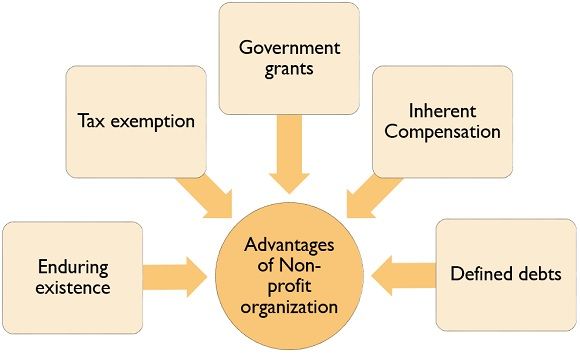Benefits of Non-Profit Organizations
Non-profit organizations play a vital role in society by addressing various social, environmental, and humanitarian issues. In this article, we will explore the numerous benefits that non-profit organizations offer to individuals, communities, and the world at large.
Enhancing Social Welfare
One of the primary benefits of non-profit organizations is their contribution to enhancing social welfare. These organizations focus on addressing societal needs, such as poverty, education, healthcare, and homelessness. By providing essential services and support to vulnerable populations, non-profits help create a more equitable society.
Community Development
Non-profits play a crucial role in community development. They foster collaboration and engagement among community members, promoting a sense of belonging and unity. Through their programs and initiatives, non-profit organizations empower individuals, strengthen community bonds, and facilitate positive change.
Advocacy and Awareness
Non-profit organizations often serve as advocates for marginalized communities and raise awareness about pressing social issues. They play a vital role in influencing public opinion, shaping policies, and promoting social justice. By amplifying the voices of those who may otherwise go unheard, non-profits contribute to a more inclusive and compassionate society.
Volunteerism and Skill Development
Non-profit organizations offer opportunities for individuals to engage in volunteer work, allowing them to contribute their time, skills, and expertise to meaningful causes. Through volunteering, individuals can develop new skills, gain valuable experiences, and broaden their perspectives. This not only benefits the non-profit organizations but also enhances personal growth and fosters a sense of fulfillment.
Collaboration and Partnerships
Non-profit organizations often collaborate with other entities, including government agencies, businesses, and academic institutions. These partnerships enable non-profits to leverage additional resources, knowledge, and expertise to address complex societal challenges effectively. By working together, different sectors can achieve greater impact and create sustainable solutions.
Tax Benefits and Donations
Non-profit organizations are eligible for tax exemptions, which incentivize individuals and businesses to donate to these organizations. By offering tax benefits, governments encourage philanthropy and support for non-profit initiatives. Donations to non-profits not only help fund their operations but also enable them to expand their reach and impact.
Transparency and Accountability
Non-profit organizations prioritize transparency and accountability in their operations. They are required to adhere to strict financial reporting standards and disclose information about their programs, impact, and governance. This commitment to transparency helps build trust among donors, supporters, and the public, ensuring that resources are utilized effectively and ethically.

Non-profit organizations are a driving force in addressing societal challenges, promoting social welfare, and fostering positive change. Through their dedication, passion, and collaborative efforts, non-profits make a significant impact on individuals, communities, and the world. By supporting and engaging with non-profit organizations, we can collectively work towards a more just, inclusive, and compassionate society.
Frequently Asked Questions
1. What are the main advantages of non-profit organizations?
Non-profit organizations can make a positive impact on society, enjoy tax-exempt status, and attract dedicated volunteers.
2. How do non-profits benefit the community?
Non-profit organizations provide essential services to the community, address social issues, and promote the well-being of individuals and groups.
3. Are there any financial benefits for donors to non-profit organizations?
Yes, donations made to non-profit organizations are often tax-deductible, providing financial benefits to donors and encouraging philanthropy.
4. Can non-profit organizations receive government grants?
Yes, non-profit organizations are eligible to receive government grants, which can provide significant financial support for their programs and initiatives.
5. Do non-profits have access to special resources or funding opportunities?
Non-profit organizations may have access to resources and funding opportunities that are specifically designated for their sector, such as grants from foundations or corporate sponsorships.
6. How do non-profits attract volunteers?
Non-profit organizations often attract volunteers through their mission-driven work, providing meaningful experiences, and offering opportunities for personal and professional growth.
7. Can non-profit organizations engage in political activities?
Non-profit organizations can engage in limited political activities, such as advocating for policy changes or raising awareness about social issues, but they must adhere to specific regulations.
8. Do non-profits have to pay taxes?
Non-profit organizations typically enjoy tax-exempt status, meaning they are not required to pay federal income taxes on their revenue, allowing more resources to be directed toward their mission.
9. How are non-profits governed?
Non-profit organizations are governed by a board of directors or trustees who oversee the organization’s activities, ensure compliance with regulations, and make strategic decisions.
10. Can non-profit organizations generate revenue?
Yes, non-profit organizations can generate revenue through various means, such as fundraising events, membership fees, selling merchandise, or offering services related to their mission.




